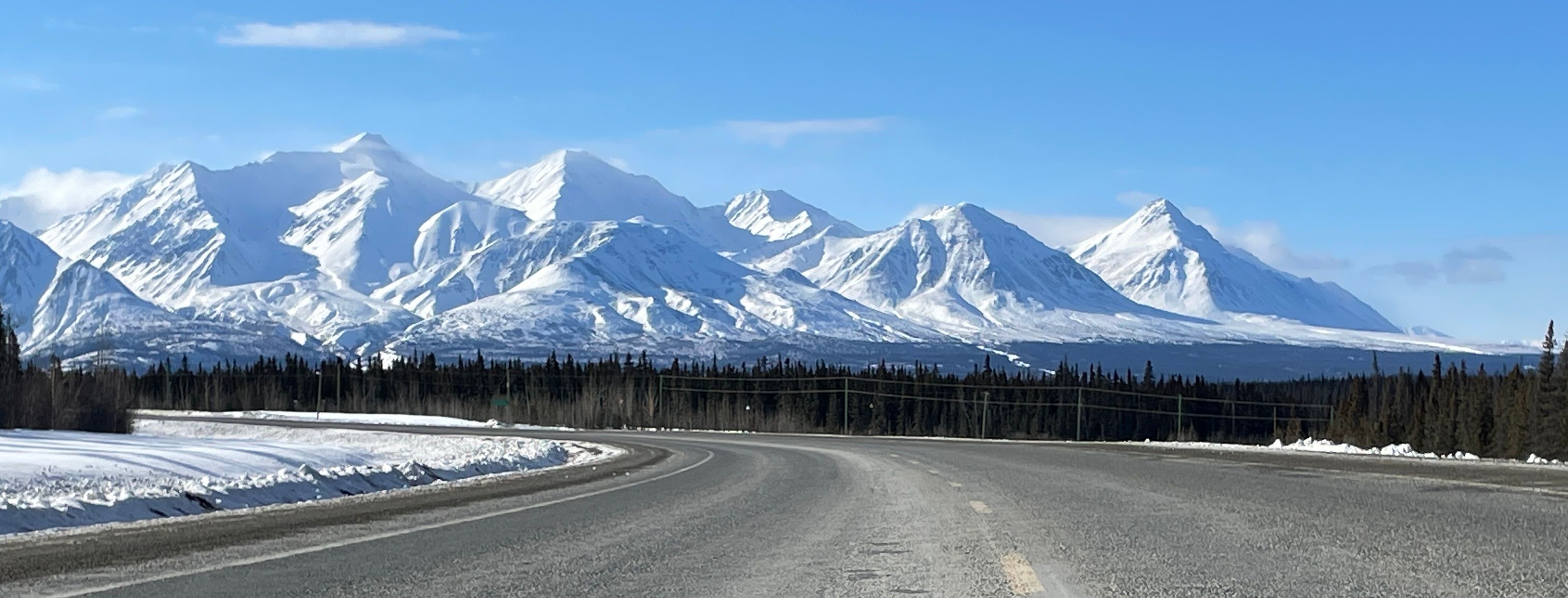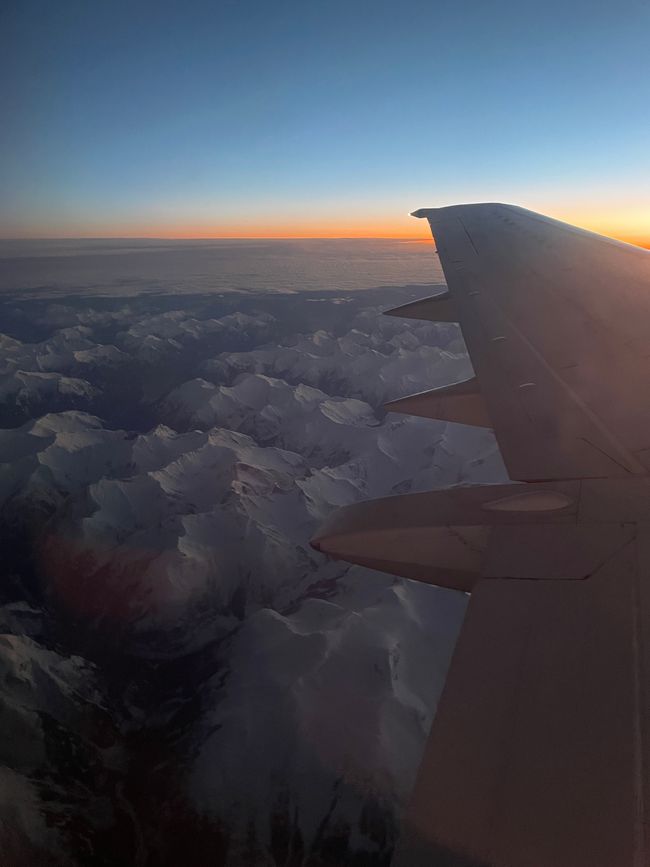01.08.-05.08. - Riobamba, Ecuador
ප්රකාශිතයි: 06.08.2023
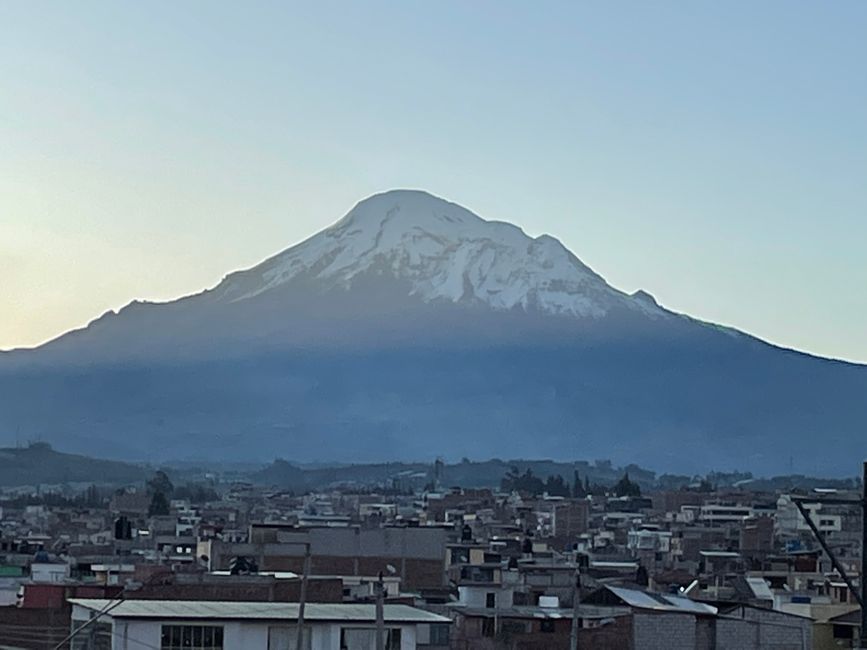
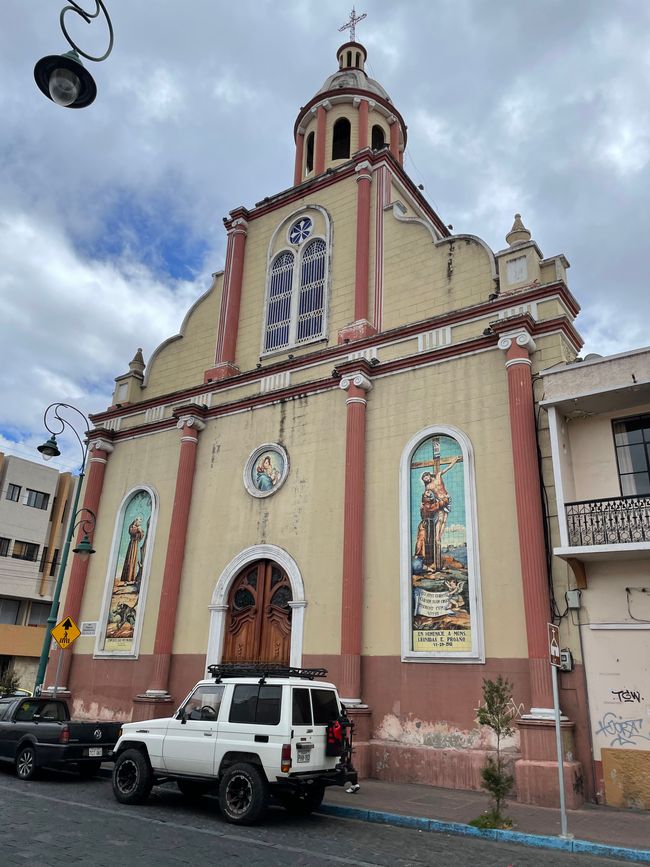
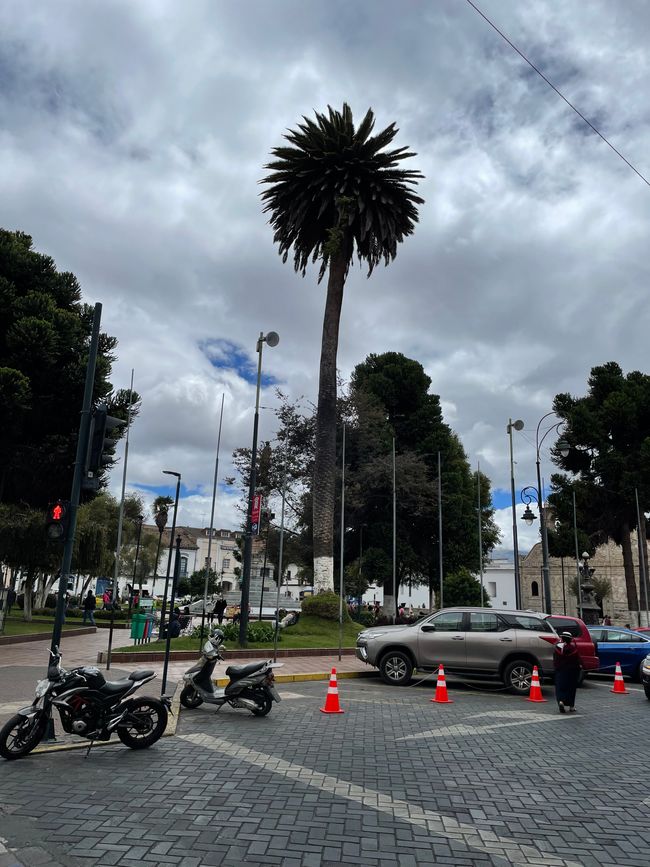
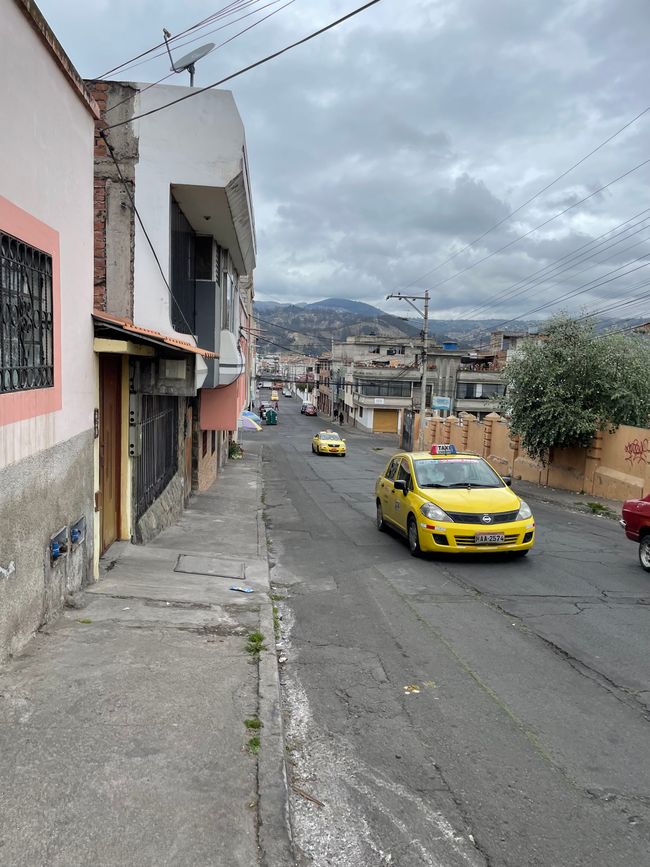
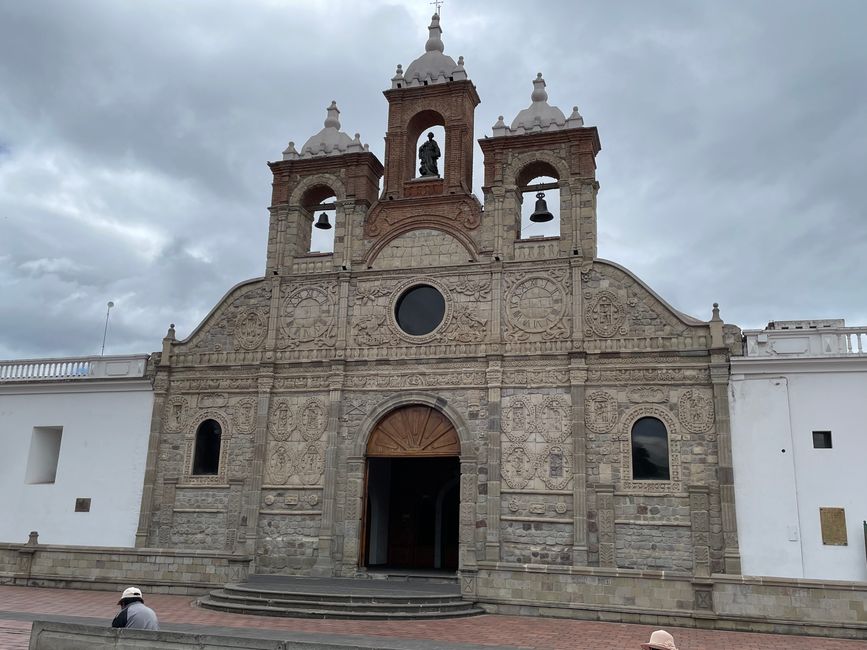
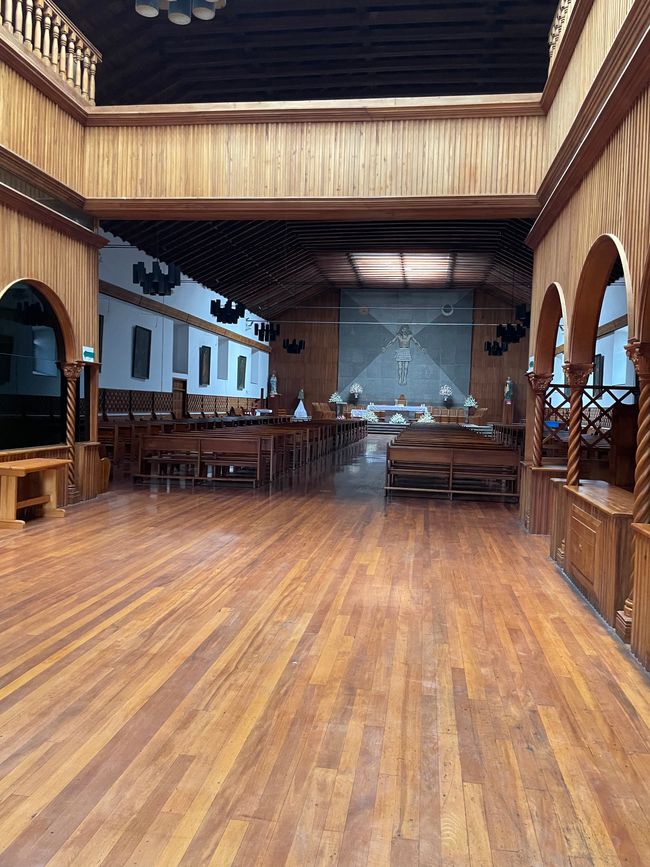
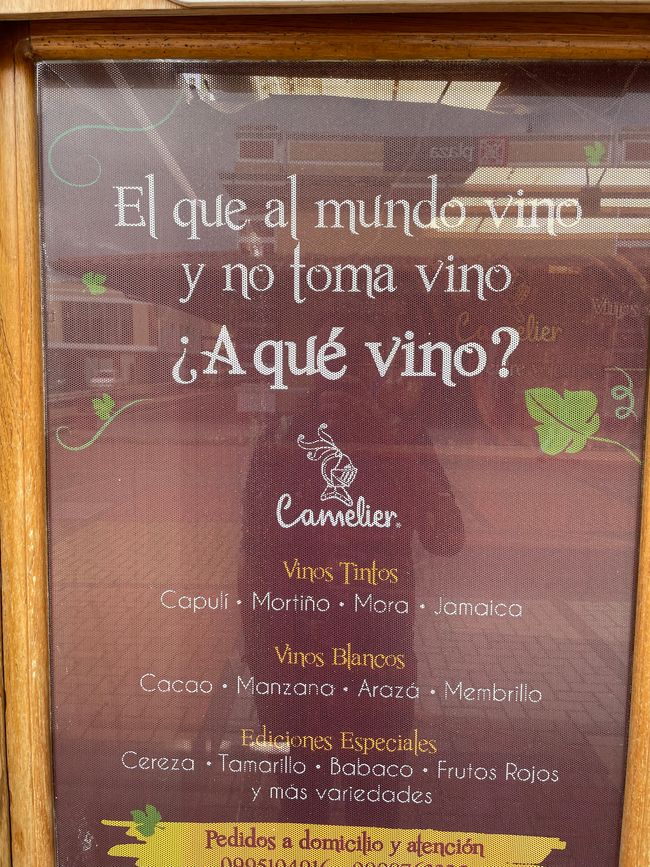
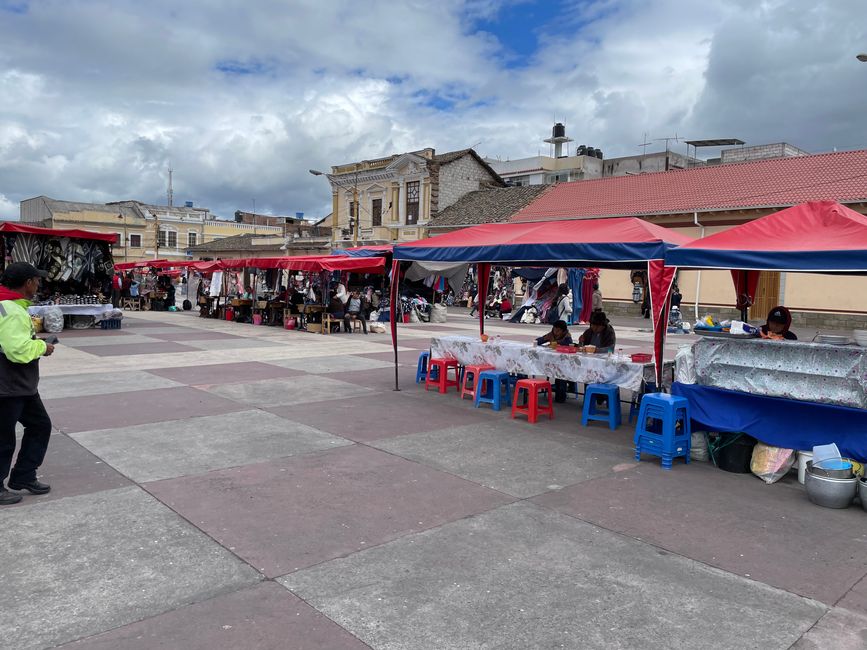
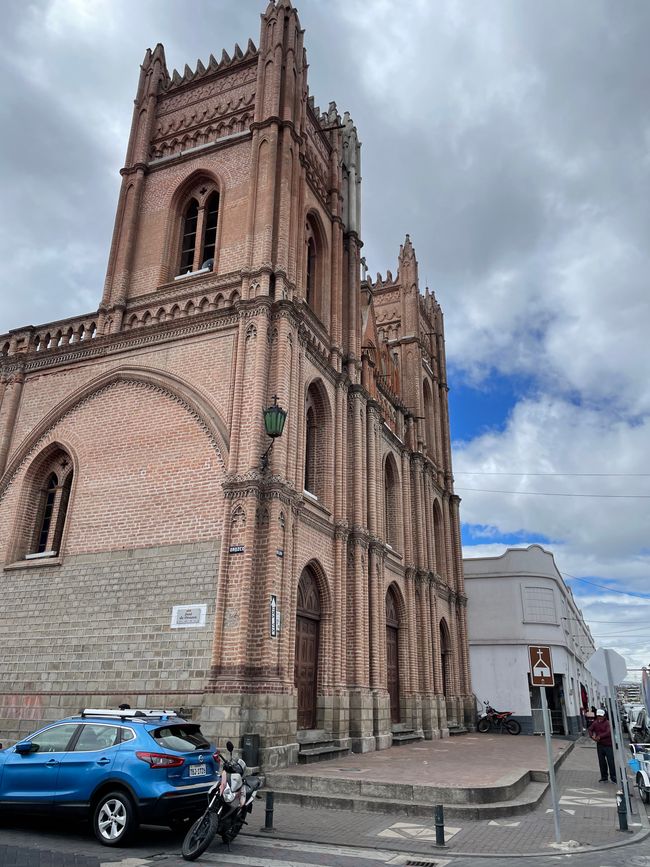
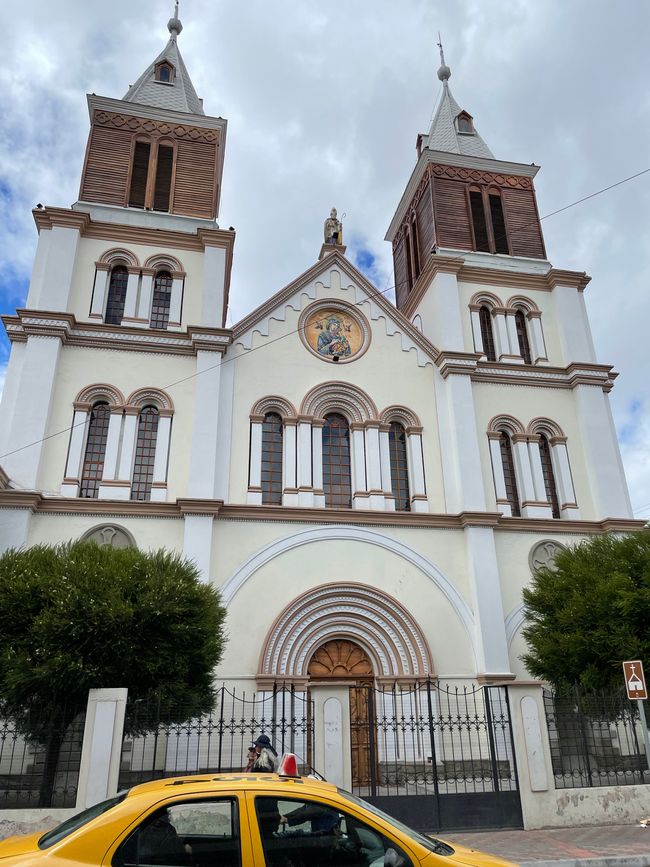
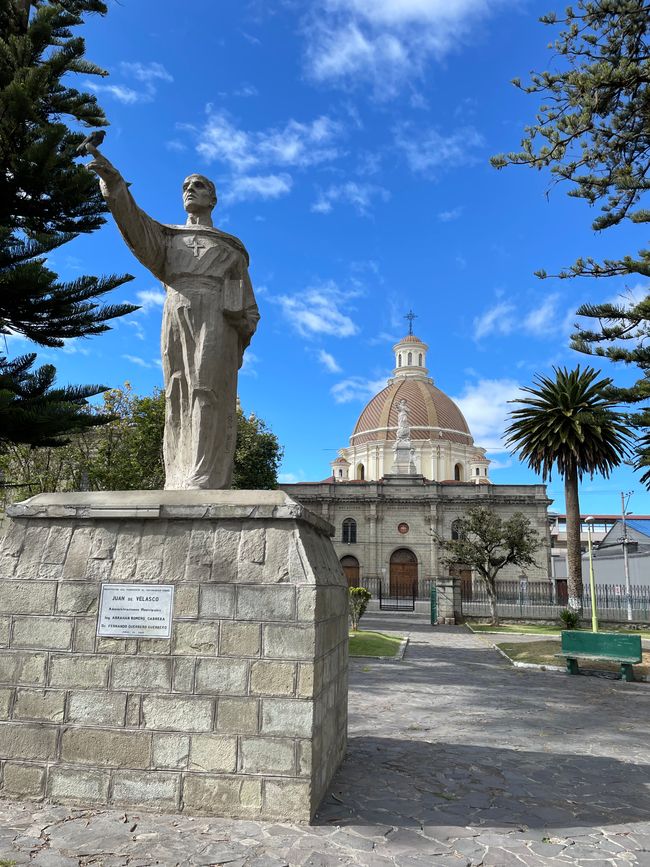
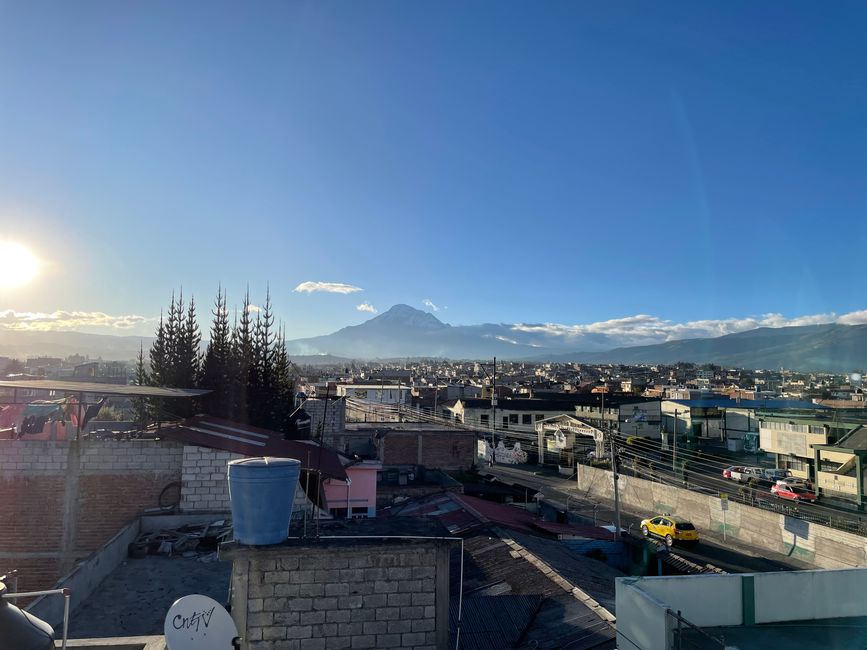
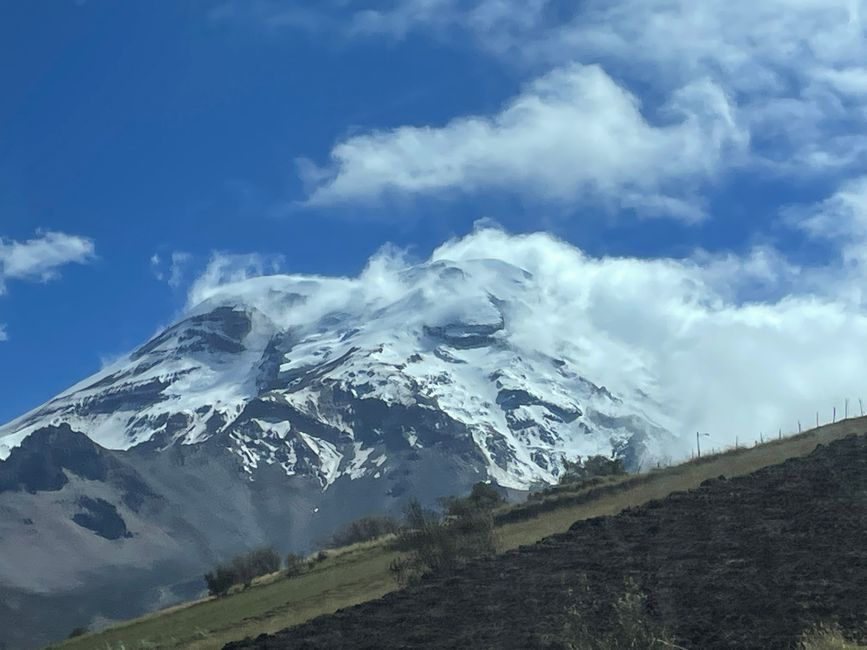
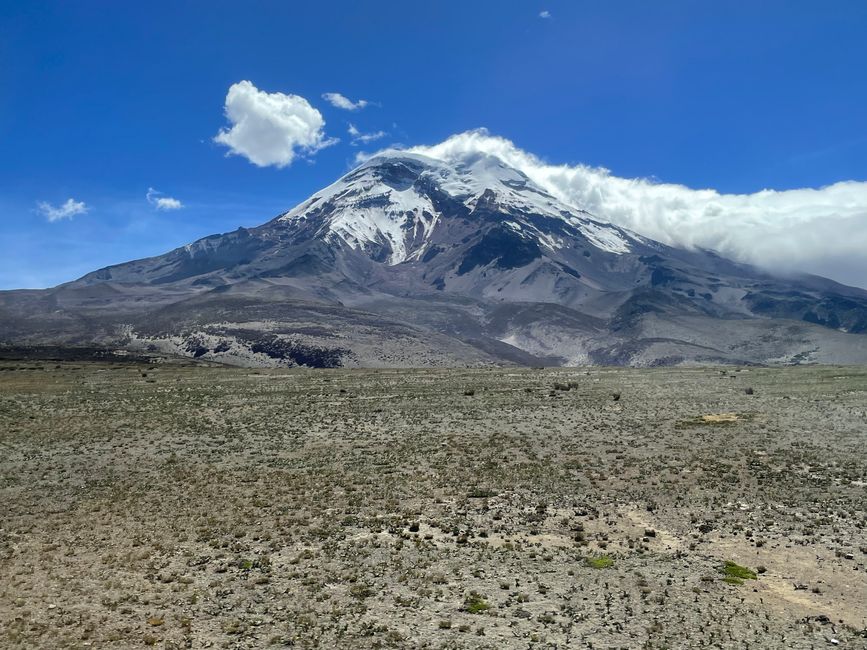
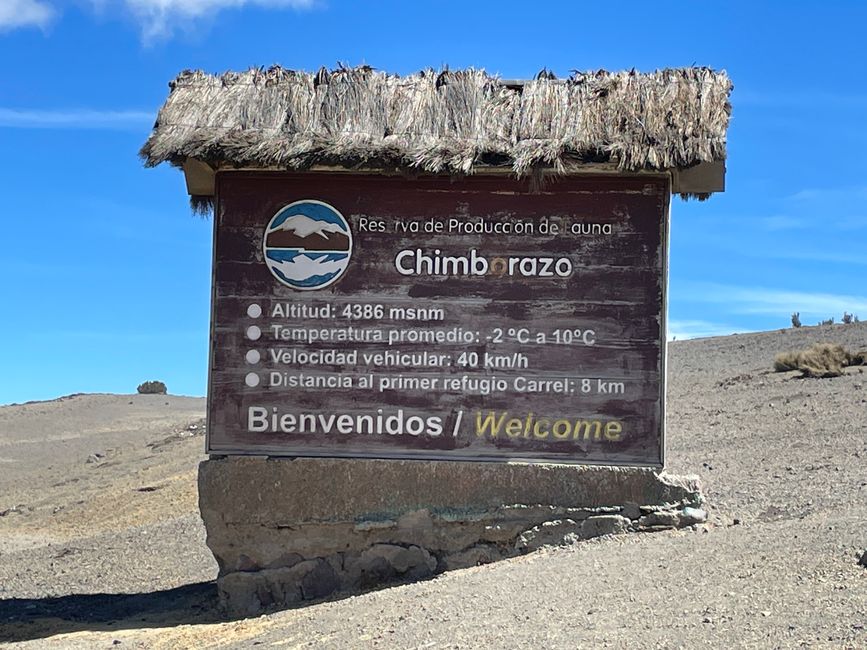
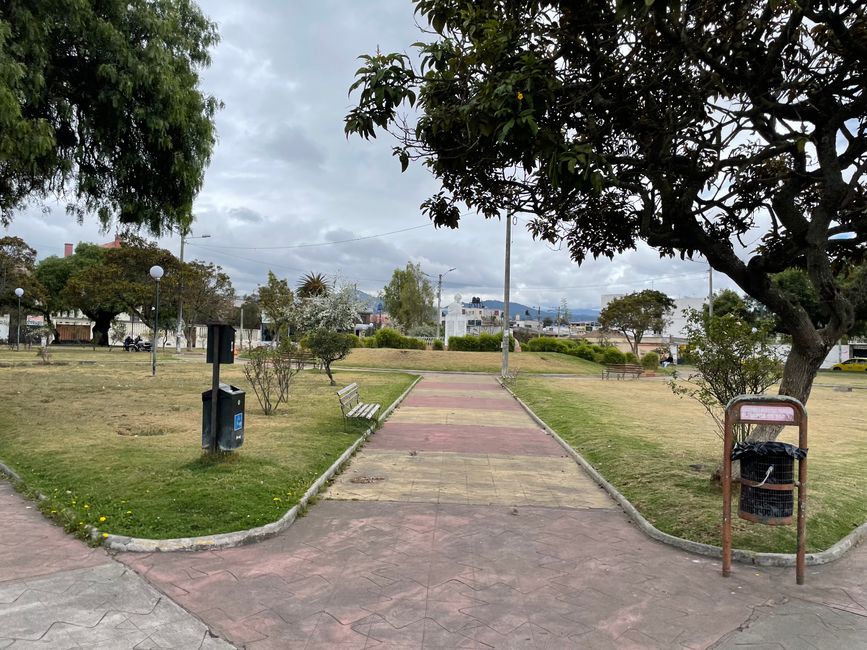
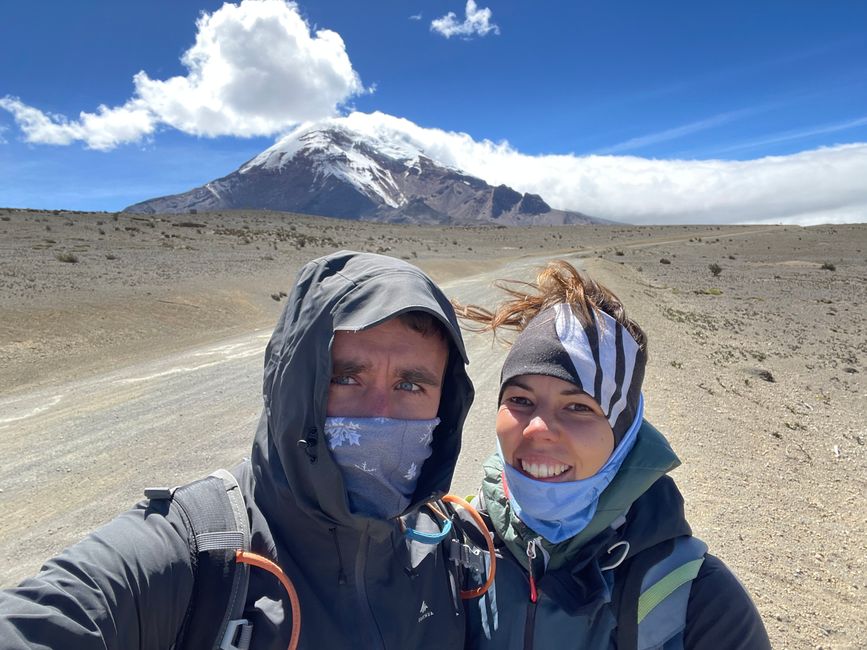
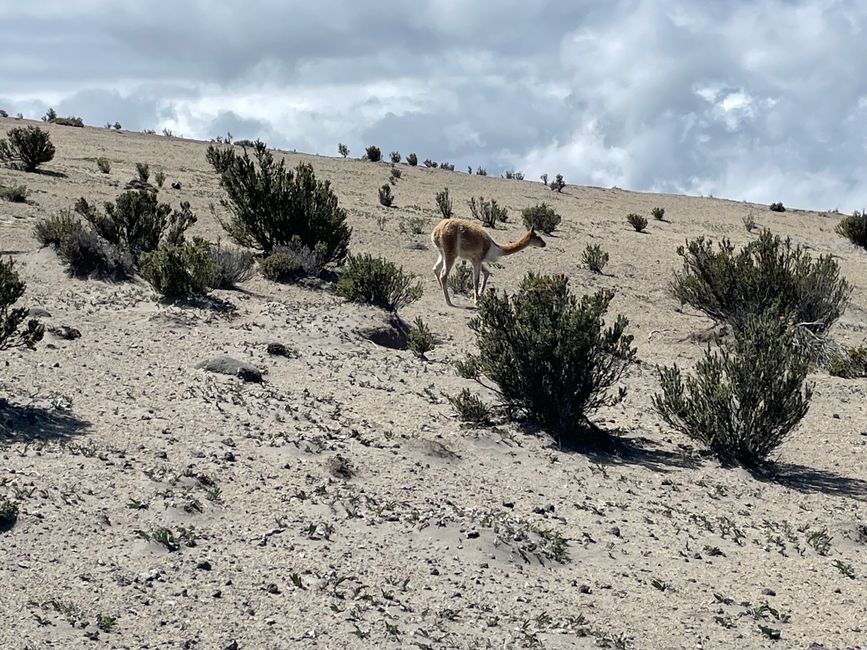
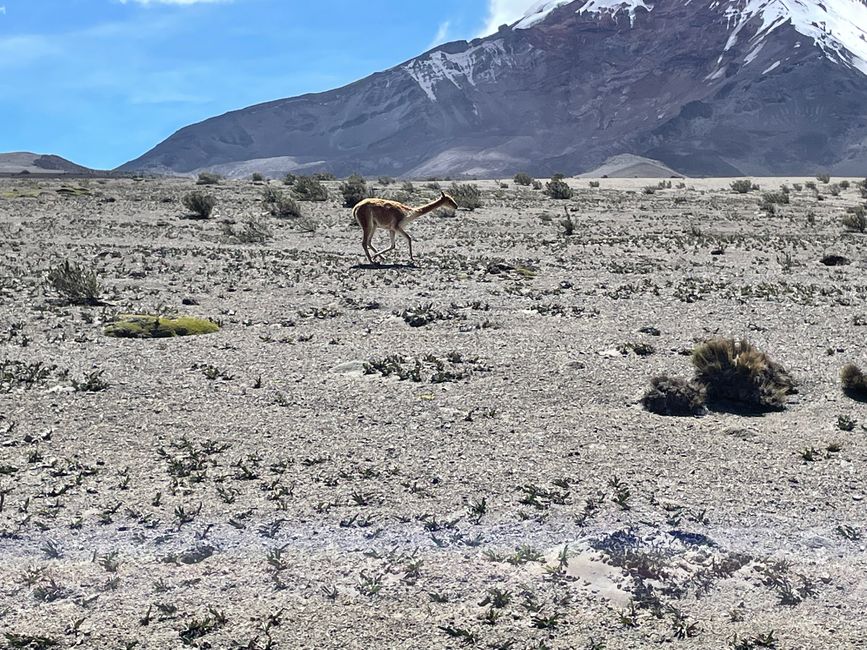
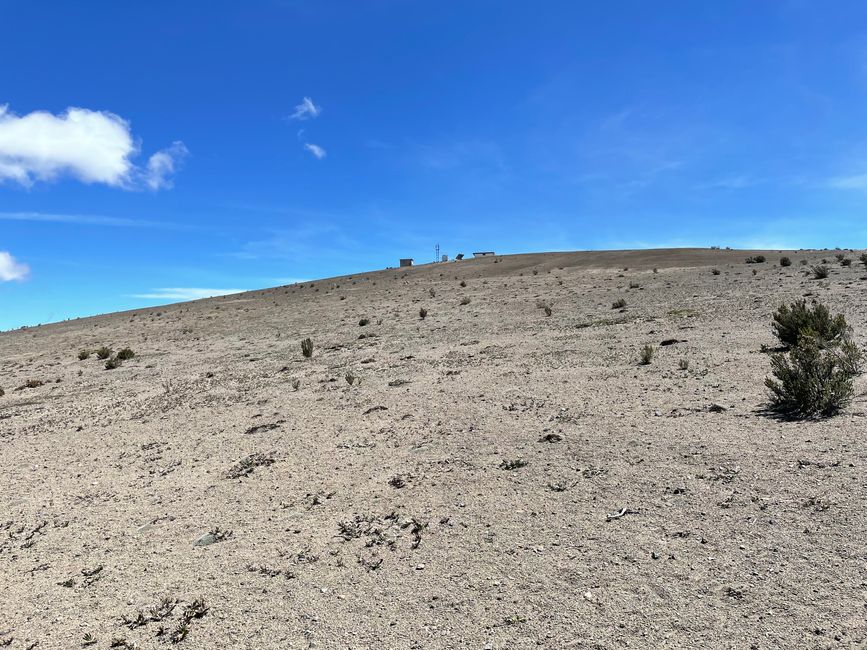
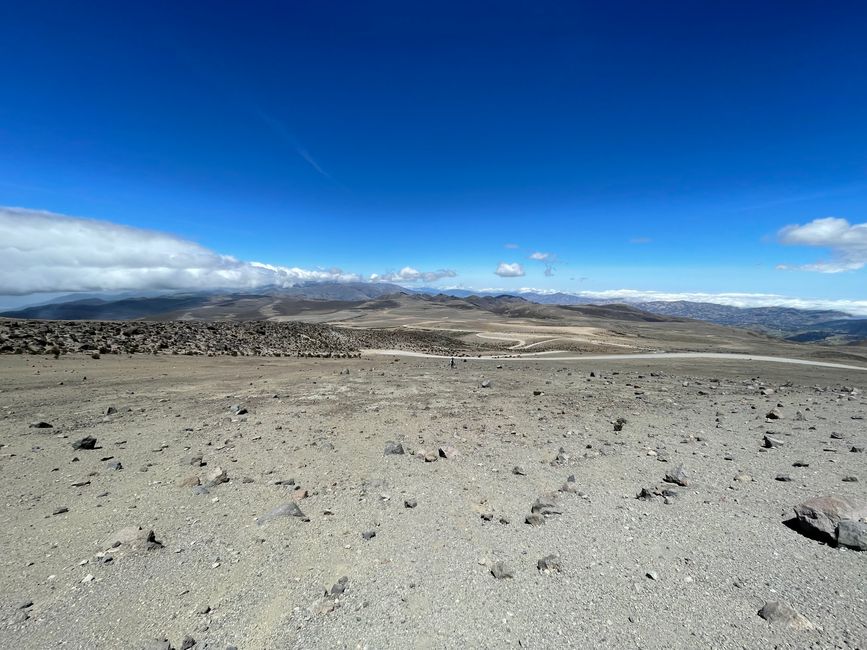
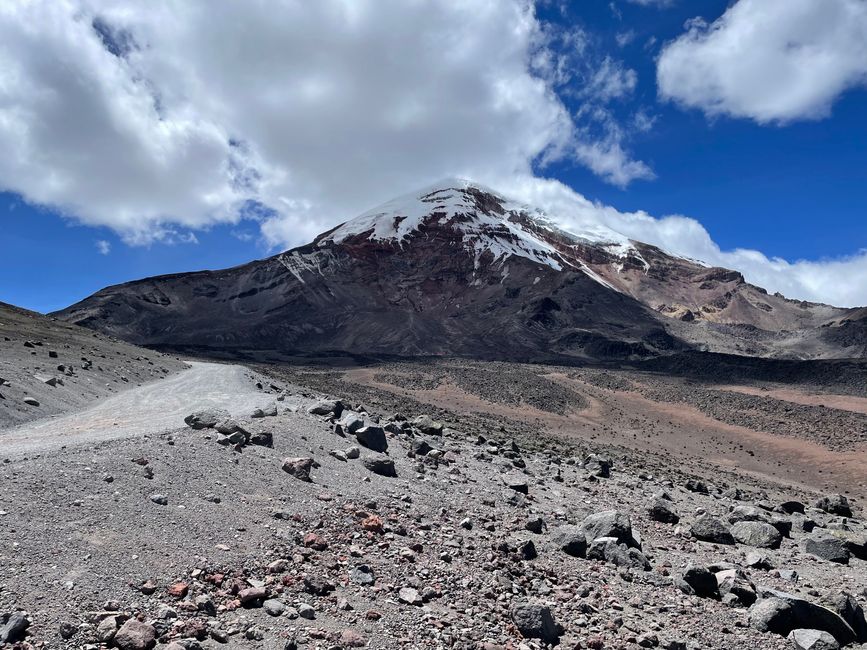
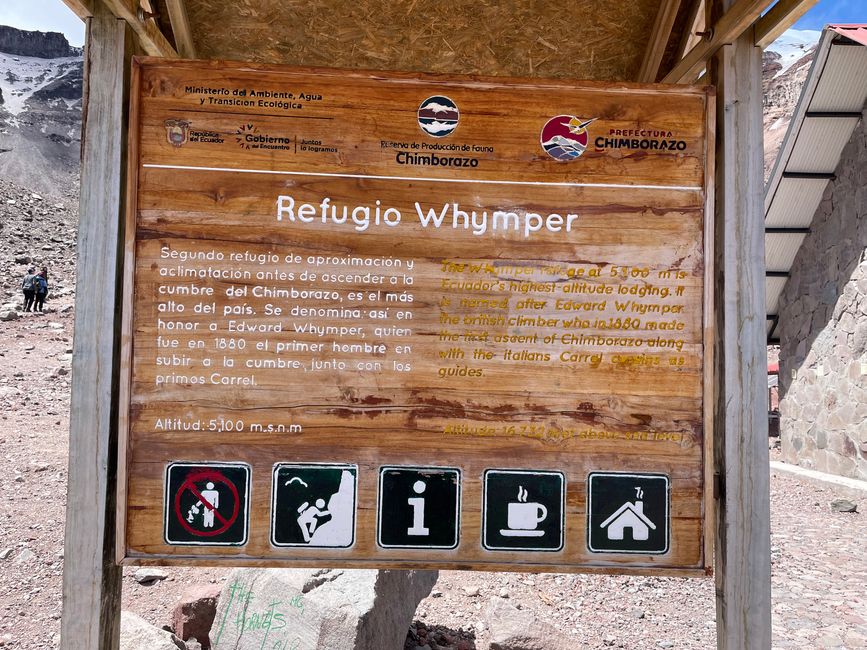
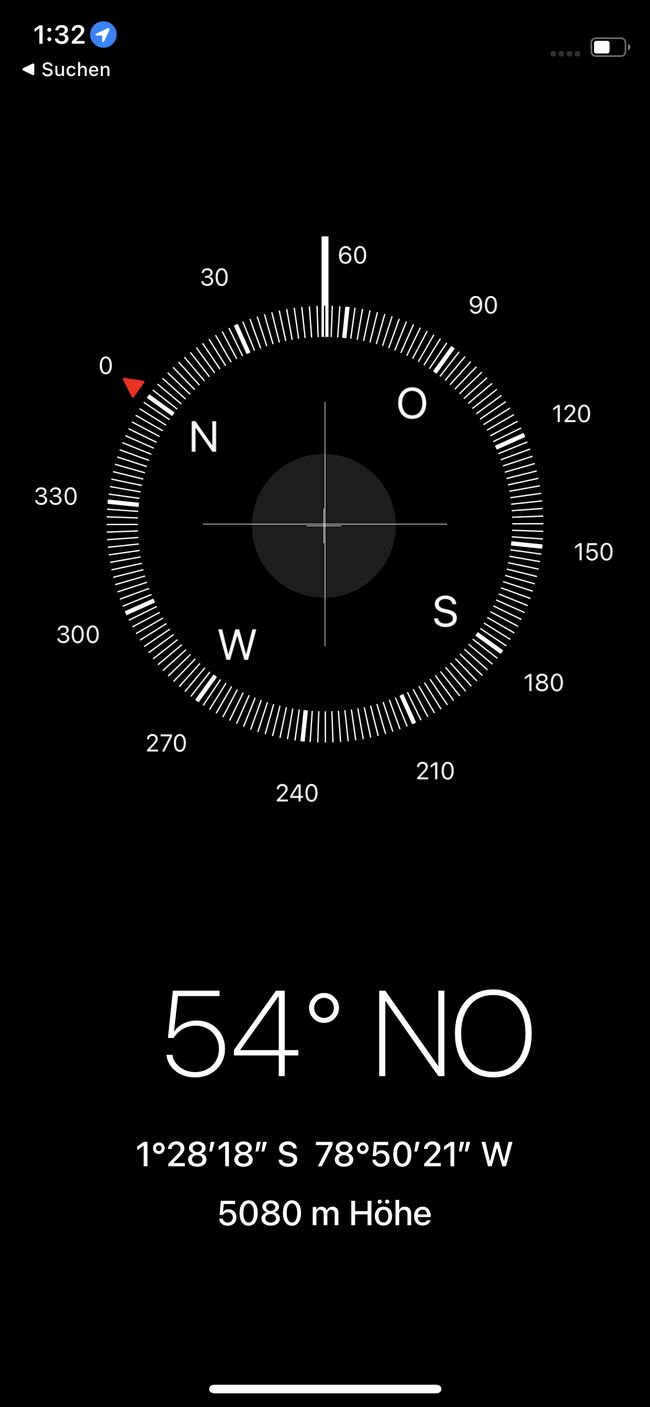
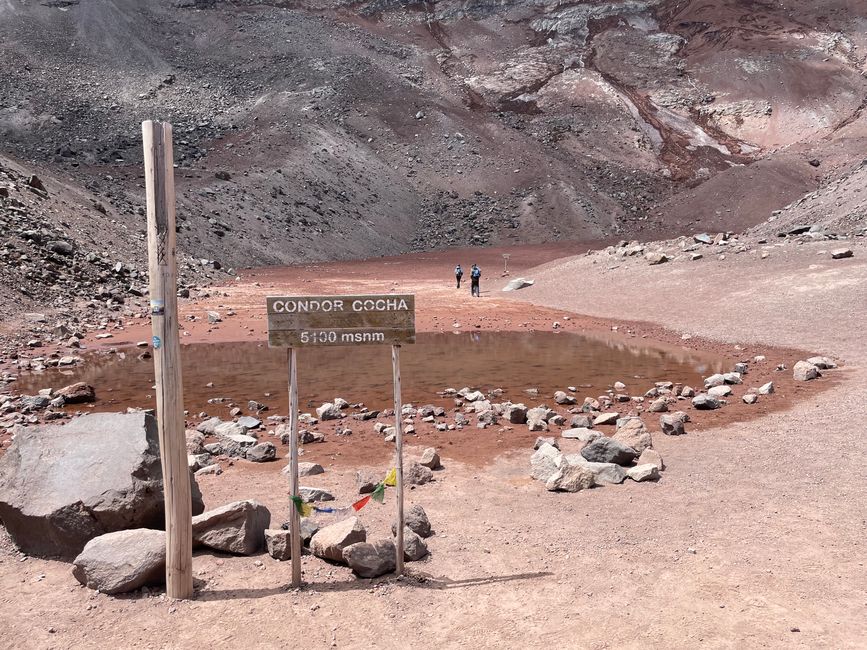
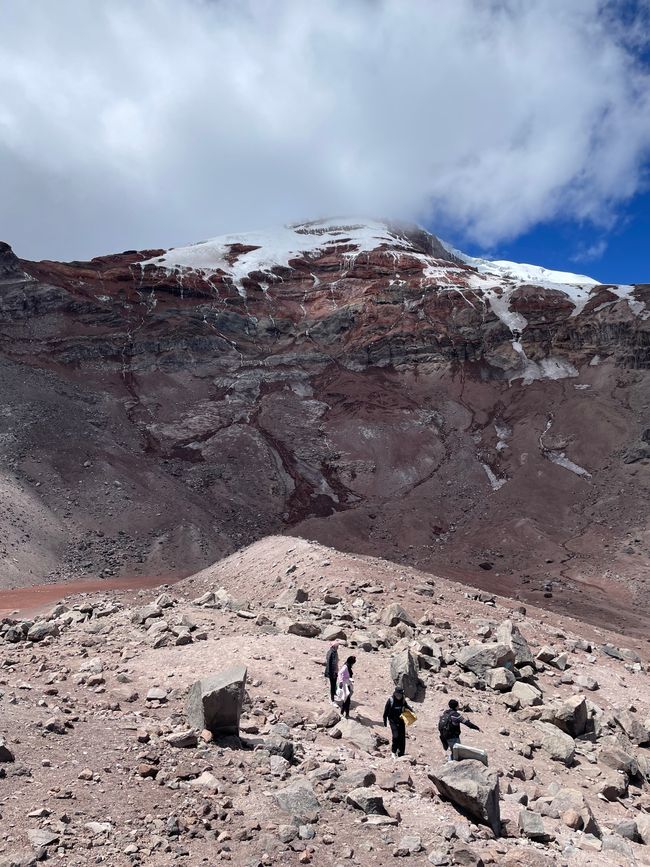
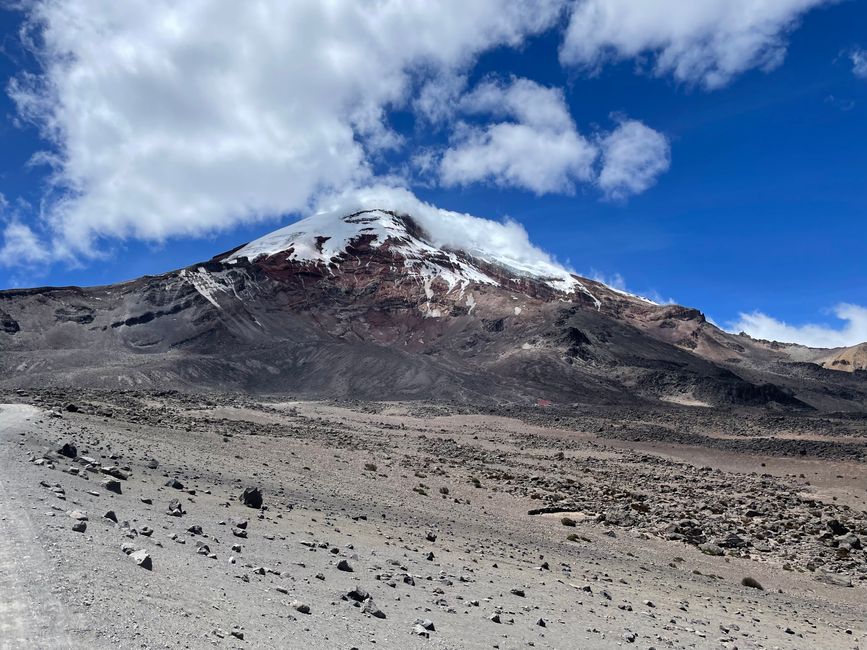
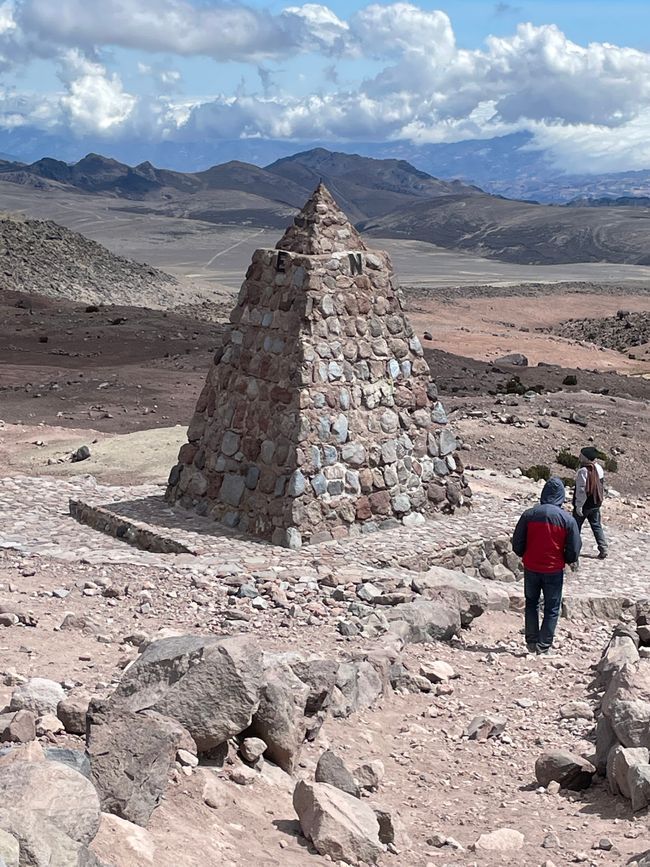
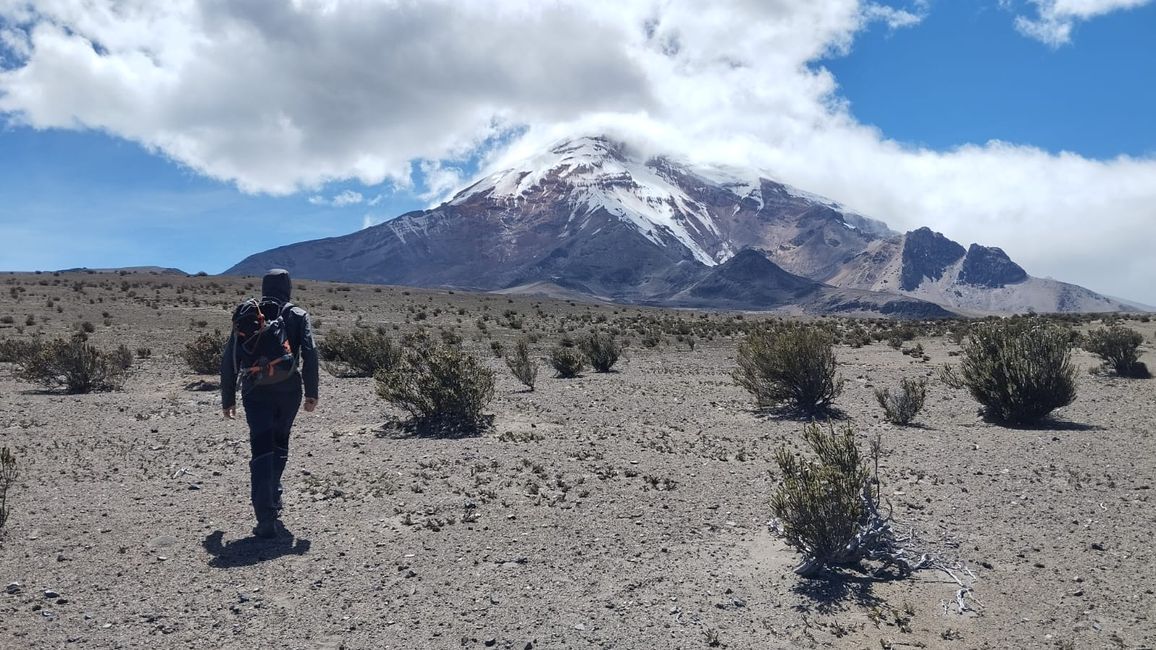
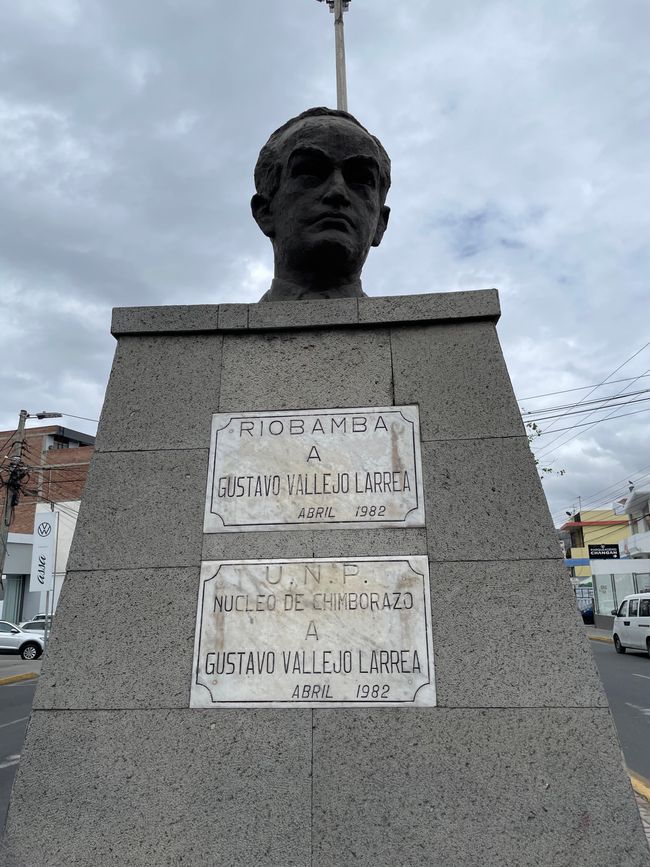
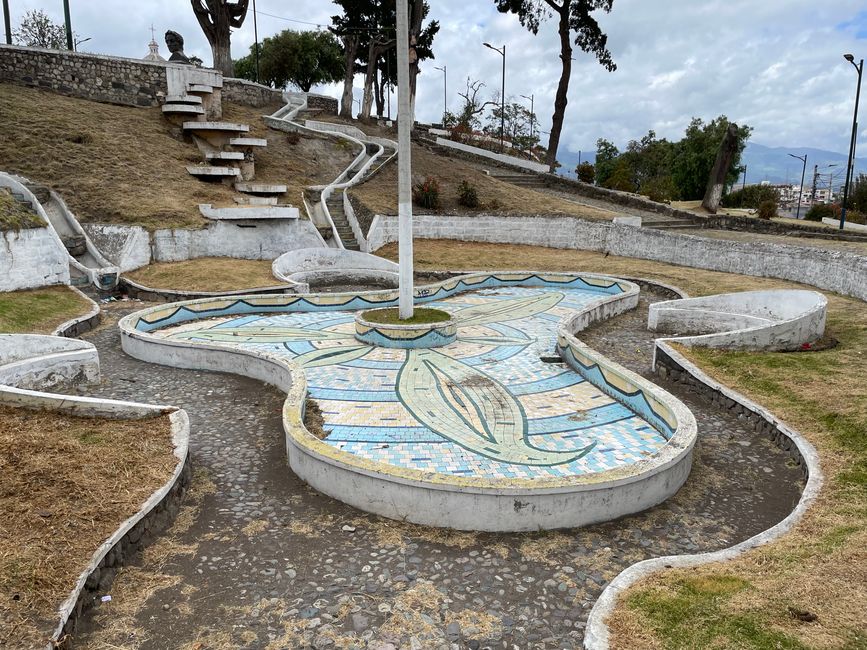
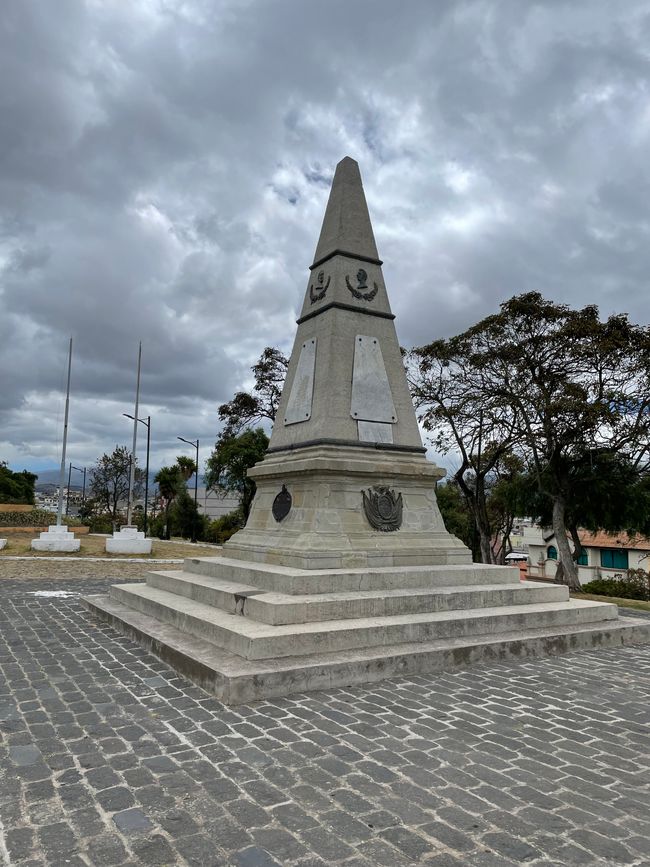
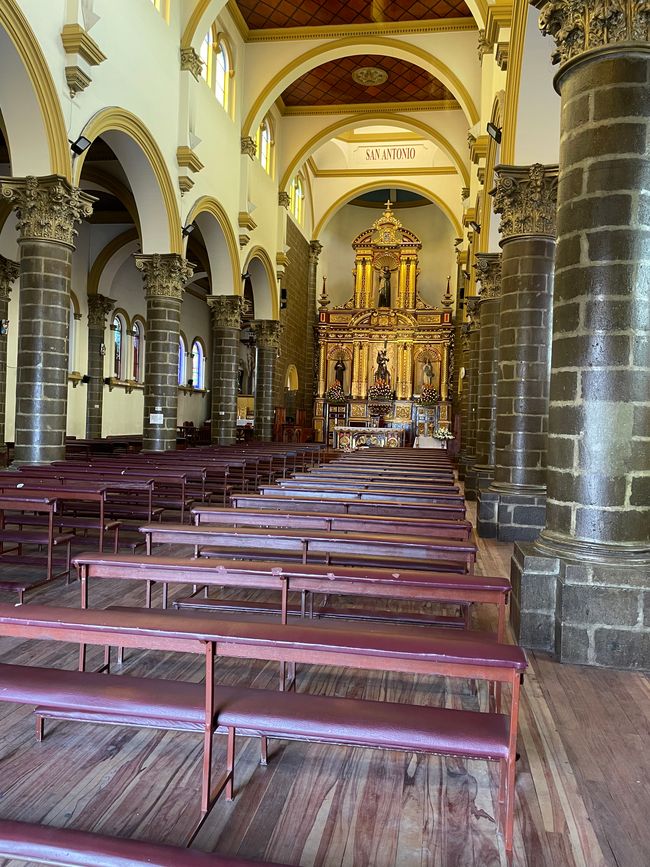
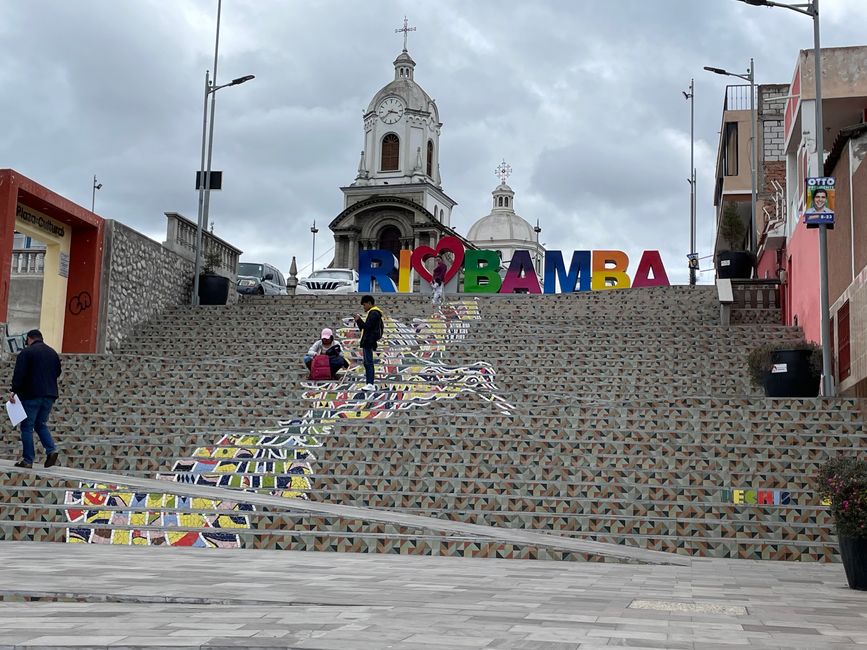
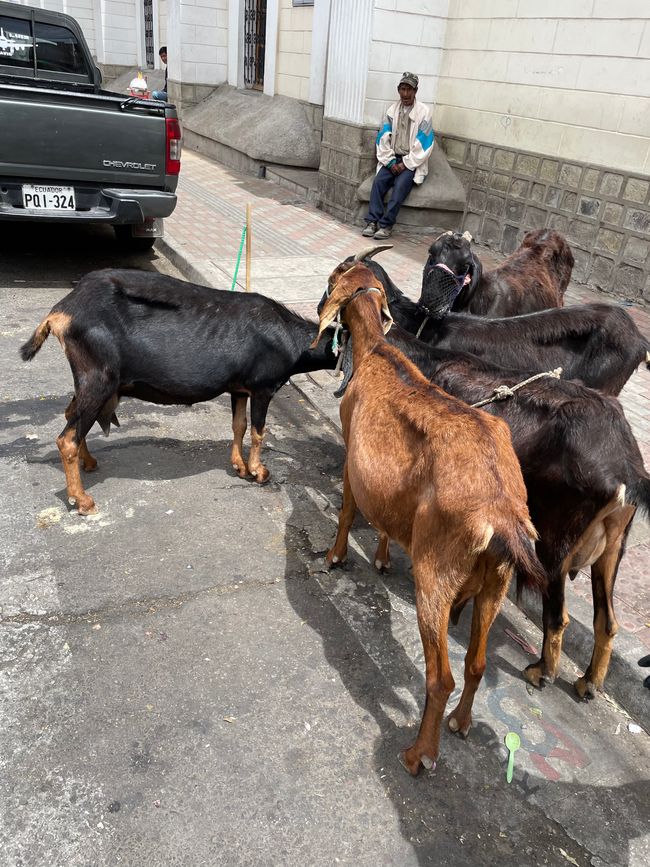
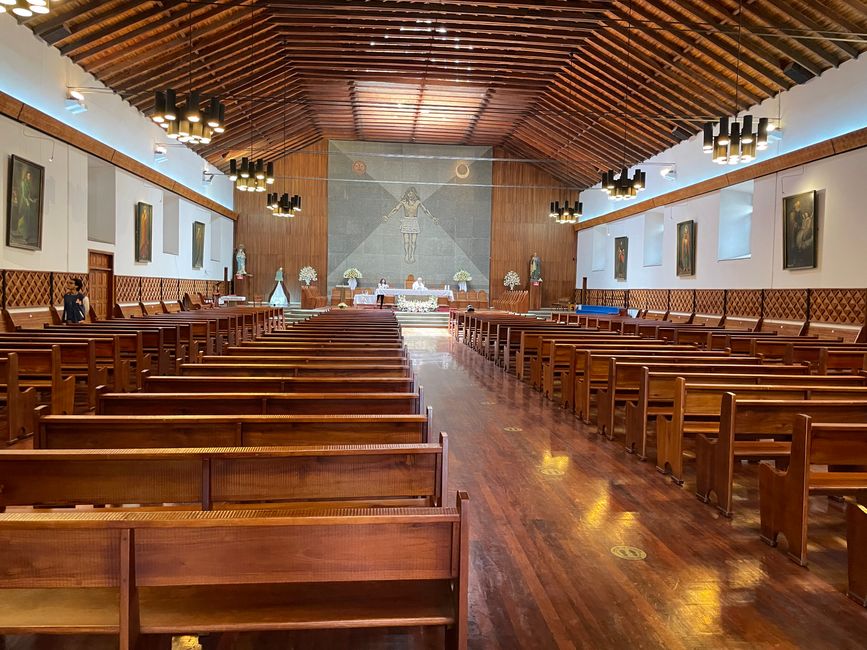
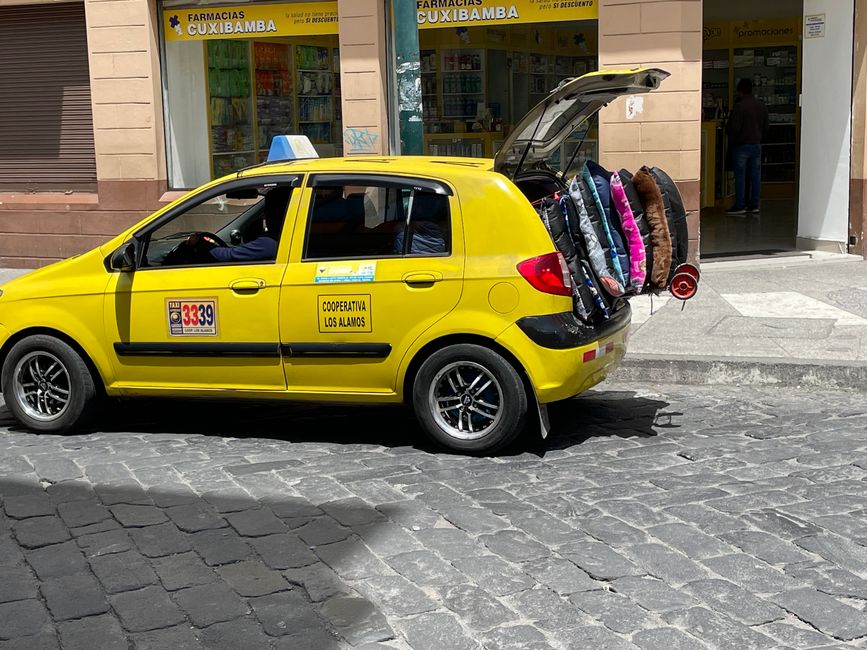
පුවත් පත්රිකාවට දායක වන්න
On 01.08., we continued to Riobamba as mentioned before. The town (about 260,000 inhabitants) is located south of the capital. The bus ride was quite relaxed, took about 4 hours, and we arrived safely. By the way, the bus left without Caro because she wanted/needed to use the bathroom (at the terminal) just before departure. Caro then sprinted through the bus station and jumped on the moving bus. No problem at all. Upon arrival in Riobamba, we moved into our accommodation, a really nice apartment. However, there is no heating, so it's usually quite cold (around 10-15°C during the day in this region).
On August 2nd, we explored the city. There isn't much to see here, to be honest. Like in almost every larger South American city, there are some big squares, many churches, and of course many sellers of all kinds of things. As mentioned before, food, especially lunch, is very cheap in Ecuador. Caro ordered 'Papas con Librillo' for lunch in the restaurant, as it must have something to do with potatoes, and potatoes are Caro's favorite food. Librillo is the honeycomb tripe of a cow. It looks pretty disgusting uncooked and doesn't taste much better cooked. But as they say, hindsight is always 20/20.
On August 3rd, we took the bus to the entrance of the 'Reserva de Produccion Faunistica Chimborazo', in English, the entrance to the Chimborazo National Park. Chimborazo is the highest mountain in Ecuador, with an elevation of 6310 meters, and - if measured from the Earth's center - the highest mountain on Earth. The entrance to the national park is located at almost 4400 meters above sea level (higher than 67 of the 82 4000-meter peaks in the Alps), and you can easily take the bus there (it costs about $2 from Riobamba and takes about an hour). You don't feel the altitude yet on the bus. When we got off at the entrance, a strong wind blew towards us. Caro had to be held on to constantly so she wouldn't fly away. Many vicuñas, which are some kind of animals from the llama/alpaca family, live in the national park. From the national park entrance, you can easily drive by car to the Refugio Carrel at an elevation of 4800 meters, but we decided to hike. According to the national park rangers, the trail from the entrance to the hut, which has a vertical gain/gain in elevation of about 400 meters, takes about 2.5 hours - but being as fit as we are, we made it in 1.5 hours. We took a short break at the hut and then walked to the Refugio Whymper, which is located about 300 meters higher at 5080 meters above sea level. The 300 meters were incredibly difficult for us, every step was painful, and we were constantly out of breath as if running a marathon. At least I found $40 on the way, so the effort paid off to some extent. From Refugio Whymper, we climbed another nearly 100 meters to Laguna Cóndor. This path was also incredibly painful, and gradually we both started experiencing more or less severe headaches. We also walked back down the trail, at least until 4400 meters from the national park entrance. Here, we sat by the road and waited for a bus to take us back to Riobamba. Luckily for us, we struck up a conversation with a tour operator at Refugio Whymper, who then allowed us to ride in his minibus (with the tourists from the tour). What a nice guy - apparently, my (now no longer quite rudimentary) Spanish skills are slowly paying off ;-) Afterward, I felt pretty terrible for the rest of the evening - the headaches got worse, I got chills, felt dizzy and blacked out, had a slight fever and stomach cramps. I talked to several people about it, some say it's altitude sickness, others say it's the flu or something like that. Whatever it was, it wasn't pleasant. As a result, I canceled the tour planned for the weekend.
Due to not feeling well, we spent Friday (04.08.) in the apartment drinking tea and watching series. Since the weather outside wasn't great anyway, it was fine.
Now, on Saturday & Sunday, we had nothing planned because of the canceled tour. We took a few walks, cooked our own food again (which was quite enjoyable for a change), and took care of some organizational matters (reporting travel cancellation damages, planning the further course of our trip, booking hostels to sleep in, ...).
Tomorrow, we will continue to Baños de Agua Santa (Bath of the Holy Water), where, according to some (sometimes quite dubious) Uber and taxi drivers, it is supposed to be very beautiful. They say we can also go rafting and canyoning there. Hopefully, that works out!
පුවත් පත්රිකාවට දායක වන්න
පිළිතුර
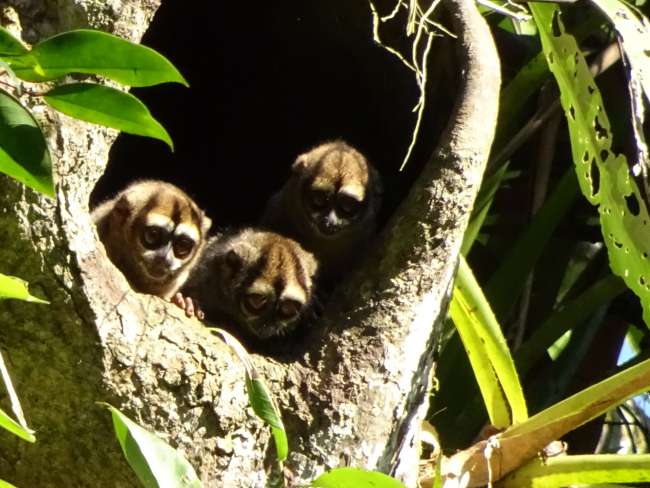
සංචාරක වාර්තා ඉක්වදෝරය
